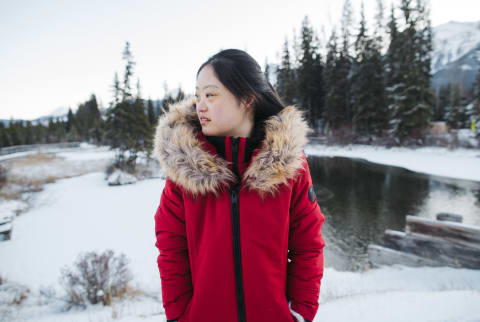Why I Consider Environmentalism The Ultimate Act Of Emotional Awareness & Self-Love


"When we restore the internal ecosystem, the fullness of our capacity to feel and love, only then will there be hope of restoring the outer." —Charles Eisenstein
When we speak about the environmental crisis, the conversation is often centered on facts, science, and logic. As a design researcher, strategist, and eco-entrepreneur, my work has taught me that this is only a piece of the puzzle. Awakening to the grief of what is happening to the earth is deeply emotional, and it will require creating space for feelings alongside logical thoughts.
I find that, more often than not, the reason people aren't more committed to environmental action is that climate change is too painful to face. To allow ourselves to fully feel what we are doing to the natural world is to expose our hearts to being broken over and over again. It hurts to feel the extraction, the domination, the violence. Holding this truth feels extremely raw and vulnerable. It is a continuous connection to grief, death, and the darkest parts of our humanity. It requires being awake to our complicity with a system that fundamentally disrespects life.
Through re-sensitizing ourselves to feel the pain of the world, we discover our desire to protect it.
Reframing our climate conversations to be more inclusive of difficult emotions could be a way to get through this crisis together.
By continuing to drive species to extinction and extract natural resources for our short-term benefit, we have internalized the worldview that we are separate from nature. But by celebrating the planet as a sacred being that is alive, we are acting as if the earth's well-being is inseparable from our own—and it is.
[L]oving the earth means loving ourselves.
Our breath comes from the oceans; we too are made of water; we need the nutrients of healthy soil to live. As we begin to recognize the depths of our interconnection to every human and nonhuman being on this planet, we reconnect with our own humanity.
We also wake up to the fact that how we treat the earth is a reflection of how we treat ourselves. The toiling, the pillaging, the damage...but also the care, the nourishment, the regeneration. We realize that fundamentally, loving the earth means loving ourselves. Doing inner work, then, is inseparable from doing the outer work.
The environmental crisis is asking us to step into a new paradigm of how we understand ourselves in relationship to the world. It is asking us to look at all of the places where we don't love ourselves enough and are choosing convenience over life, competition over collaboration, extraction over rest, quantity over quality, fear over love.
That's why I approach environmentalism as a practice of self-love.
My version of activism is rooted in showing up for the earth, and for myself, every day. Loving the earth (and ourselves) is not an idea, it is a decision—or rather, a series of the hundreds of decisions that we make over the course of a day: Whether to get that to-go coffee cup, what toothbrush to buy, how to act in a way that interweaves your success with mine and that of everything else on this planet.
So, how does one practice environmentalism as self-love? The answer is both simple and complex. Transformation is a slow process that requires time, attention, and intention. It takes being committed to looking at the mundane with a beginner's mind—with an insatiable curiosity for the "what ifs?"—and questioning how we might begin to reprogram beliefs and habits that we perceived as absolutes to create space for something new.
It is from this place that we can really begin to create solutions that address the problem from the root instead of putting a Band-Aid on the symptoms or remaining in a state of paralysis. The great news is that this is also a process of reclaiming our creativity and our power.
Here are some places we can begin to practice environmentalism as a form of self-love:
- Get curious about your trash. What we throw away has a lot to teach us about what we value. I've started questioning my consumption mindset with this guided mindfulness meditation that focuses on trash.
- Love up your body. We are what eat, and what nourishes our bodies nourishes the land. If you're lucky enough to have access to fresh produce all year round, ask: Is what I'm about to eat in season? Is it local? Is it unprocessed and package-free, as close to the land as possible? Then, make gratitude a ritual at every meal. Thank the soil, the water, the people, and the energy it took to grow the food on your plate.
- Level up your skin care routine. Question what you are putting on your skin. The makeup, the creams, the soaps... What is in the products you use every day? The skin is the largest organ of our bodies, and everything we put on it gets absorbed into our system.
By practicing environmentalism as self-love, we remember that we have the ability to create the world we want to inhabit. As we nourish our love for ourselves, our love for the planet grows—and vice versa.

Alexa Gantous is a freelance environmental strategist and the co-founder of LitterRally, a mobile dancing trash pickup party. She is also the founder of TrashTalk Studio, a living lab through which she facilitates mindfulness workshops that help people re-frame the environmental crisis as an opportunity.
Her multidisciplinary approach uses design thinking as a tool for ecological innovation, and the power of play as a way to co-create positive cultural impact. She has a BBA in Strategic Design and Management and a minor in Environmental Studies from Parsons School of Design.